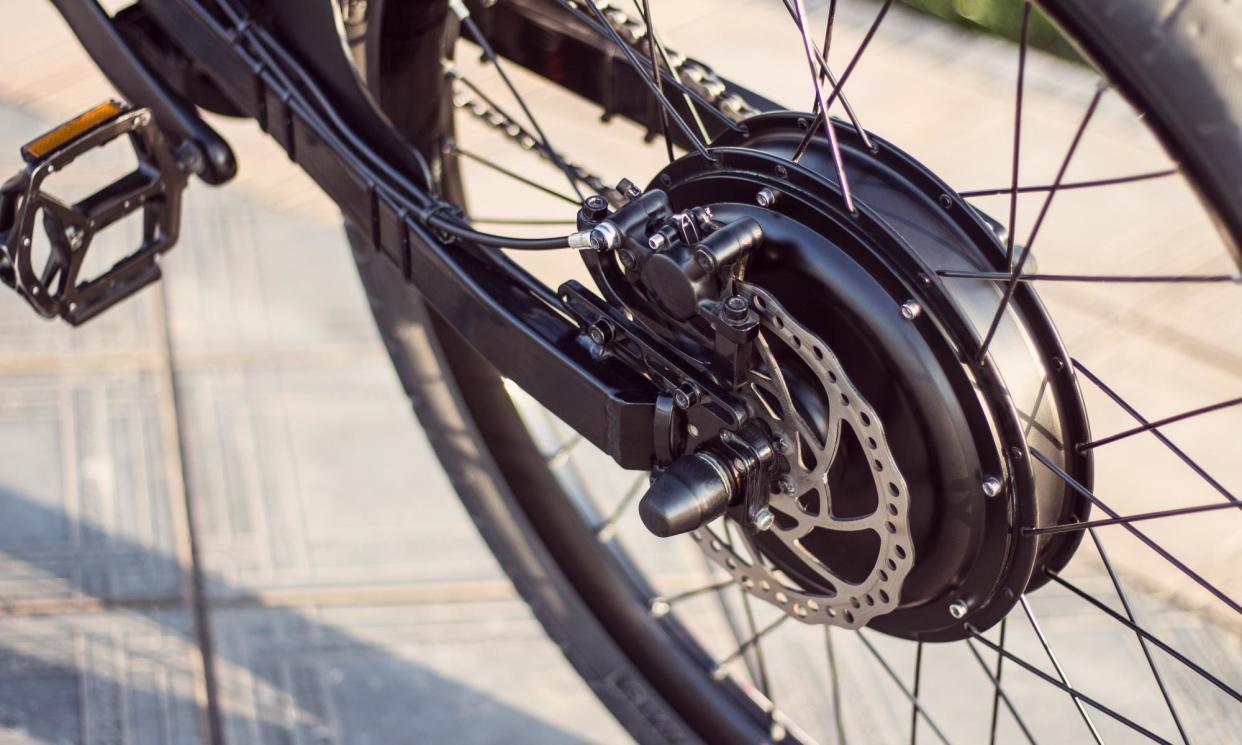Ministers to consult on doubling legal wattage of electric bike motors

Ministers are to consult on doubling the legal wattage of electric bike motors, despite concerns over road safety and the risk of deadly fires caused by batteries.
The Department for Transport will launch the consultation on Thursday, the Guardian understands, which will propose changing the maximum allowable power of an e-bike motor from 250w to 500w.
Another possible move would allow e-bikes to be powered by a throttle, like a motorbike. Currently, they must be pedalled for the electric motor to start working.
While the plans are believed to not include increasing the maximum powered speed of e-bikes from the current 15mph, the Bicycle Association, which represents the cycling industry, said it has serious concerns about the consultation.
In a briefing document to members seen by the Guardian, the organisation noted that 500w non-pedal bikes would be notably quicker to accelerate and would need significantly bigger batteries, making them heavier and thus more dangerous in crashes.
Some e-bike owners already tamper with their software to remove the 15mph limit, and with 500w bikes this could lead to very high unrestricted maximum speeds.
While the Bicycle Association does not mention this risk, fire services are likely to be wary of a change involving larger batteries, given a recent surge in fires involving e-bike and e-scooter batteries, some of which have killed people.
Because the EU has the same 250w limit the UK currently does, if the UK moves to 500w, many buyers might have to buy the more powerful e-bikes from places like China, where battery safety rules are less strict.
Related: When will my Cycle to Work electric bike ever be delivered?
The briefing warned that the change could affect the industry more generally if a pushback against heavy and potentially quicker machines on the roads saw calls for all e-bikes to require registration and licensing like motorbikes.
“While the idea of more power and throttles may seem superficially attractive, we believe it cannot be introduced without putting at risk the electric cycle’s category status as ‘not a motor vehicle’, which we [the cycle industry] understand as key to its role and potential as a universal mode of transport,” it said.
“We consider this proposal highly risky for the current e-bike category, which relies for its success on e-bikes being treated legally as cycles, not as motor vehicles. This may be impossible to sustain if these new rules go through. There are also serious safety implications and possible unintended consequences to this proposed change.”
E-bikes are increasingly popular in the UK, and now comprise close to a third of all bike sales. One big area of growth has been in cargo or family bikes, which can carry several children.
The body said it was not clear why the DfT had decided to go ahead with the consultation, saying it could be because ministers want to show the UK can diverge from EU rules, or that there was demand from big logistics firms wanting to move into cargo cycle operations.
As well as more power for freight-carrying bikes, there could be some advocates for the changes. For example, some cyclists with disabilities find it easier to use e-bikes but are unable to pedal unassisted to the 4mph speed at which, under current laws, the electric motor starts up. They either have to not cycle, or use an illegal bike with a throttle.
The DfT was contacted for comment.

 Yahoo News
Yahoo News 
